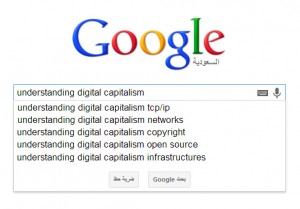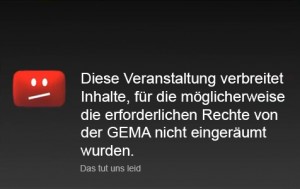Understanding Digital Capitalism
Timo Daum held a series of public lectures on the future of Capitalism in the Internet era.
He is currently writing an article series on the subject for Das Filter – Medium und Plattform für Kultur und Gesellschaft der Gegenwart under the title Understanding Digital Capitalism.
Companies like Google, Facebook, Amazon etc. are the “ruling class of the digital world” (Nenad Romic) – are changing the rules for businesses and influence everyday life of many individuals. Which infrastructures do they rely on for their business models? What are the ideological foundations of the Silicon Valley entrepreneurs? What’s their agenda as opposed to the interests of infrastructure carriers and the media industry? How does an economic model based on commodity exchange work in the era of user generated content?
These questions and alike are being discussed in the ongoing series of public lectures organized by Timo Daum and the journalist Jessica Zeller.
Lecture 1: How Google et. al. Are Changing Global Capitalism
Lecture 2: Copyright in the Digital World
Lecture 3: Beyond Intellectual Property
Lecture 4: Social Media, User Generated Content and the Flourish of Profit
Lecture 5: Forget Privacy? Encrypt or not?
Lecture 1: How Google et. al. Are Changing Global Capitalism
- TCP/IP politics
- The Silicon Valley “Traumfabrik”
- The Californian ideology (Barbrook, Cameron)
- On Infrastructure studies
- The network paradigm
- Copyright in the Internet age
Technical knowledge is missing in the ongoing discussion about the future of the Information Age. Any politician know what TCP/IP stands for? How come that user data are the new commodity – a critique of political economy in the digital age is desperately needed. How do these companies structure and influence our lives – both professional and personal?
Understanding Digital Capitalism. Lecture 1. Introduction. Handout (German)
Lecture 2: Copyright in the Digital World
„It took centuries for music to enter commodity exchange.” (Jcques Attali: Noise, 1977).
- Music becomes a commodity
- Brahms, Beethoven and back
- The myth of the author
- On intellectual property
- Legal forms and their power as “Realabstraktion”
- On collecting societies like GEMA
- Intellectual property and basic income
Understanding Digital Capitalism. Lecture 2. Copyright. Handout (German)
Lecture 3: Beyond Intellectual Property
- Distribution models beyond collecting societies
- Creative Commons
- Concepts for cultural flat rate, basic income for artists and infrastructure fees
- Alternatives to copyright
- Is science a model for cultural production?
Understanding Digital Capitalism. Lecture 3. Beyond Intellectual Property. Handout (English/German)
Lecture 4: Social Media, User Generated Content and the Flourish of Profit
“On the internet, nobody knows you’re a dog”.
- The digital working class – that’s you!
- Social Media, user generated content, capital and revenue
- How does Facebook make money?
- Why is there no “Dislike” or “I’m undecided” button?
- Why is the AdBlocker a striving business model?
Understanding Digital Capitalism. Lecture 4. Social Media. Handout (German)
Lecture 5: Forget Privacy? Encrypt or not? Political and Artistic Interventions. With Journalist Verena Dauerer
- Quick history of “the right to be left alone”
- From Vokszählung to the user data deluge
- The “needle in the haystack” ideology
- Sascha Lobo’s airport metaphor for the Internet
- Is end user encryption a social practice?
- Reclaim your data – approaches and projects
Understanding Digital Capitalism. Lecture 5. Forget Privacy?. Handout (German)





